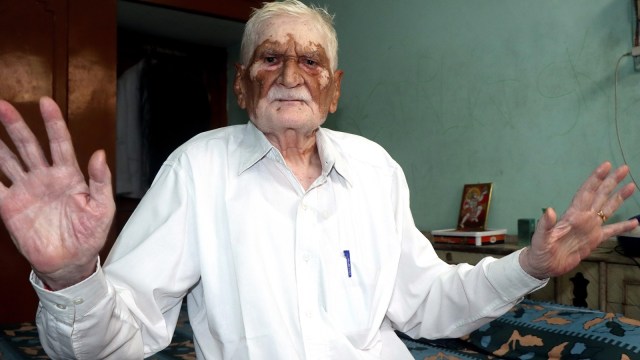The air was thick with smoke and tension. Outside the mud-walled house, angry voices rose and fell, the sound of feet shuffling on dry earth, the occasional metallic clink of a weapon being shifted from one hand to another. In the flicker of lantern light, faces appeared and vanished in the darkness, eyes fixed on the door.
Inside, Mohamad Rasim stood tall, a gun in his hands. His son was beside him, clutching his own weapon, both silhouetted against the dim glow of an oil lamp. Behind them, in the shadows, sat their guests — Lala Nanak Chand, a Hindu moneylender, and his nephew. The two men had come seeking safety only hours earlier, after their shop in the neighbouring village was looted.

The mob outside wanted blood. Some were neighbours. Others were familiar from the market or the mosque. But that night in 1947, as Partition’s fury swept through Punjab, friendship, kinship, and shared history counted for nothing.
Rasim’s voice cut through the noise. “Nanak is my brother,” he said, steady and unyielding. “If you want to touch him, you’ll have to kill me first.”
The crowd surged forward, then held back. Through the night they came in groups, shouting, threatening, demanding. But no one crossed the threshold. Rasim and his son kept their posts until the first light of dawn.
At 4 am, Rasim decided it was time to move. He walked Nanak Chand and his nephew beyond the village boundary, scanning the shadows for danger. Before they parted, he pressed a box of desi ghee into Nanak Chand’s hands. “We’ll call you back once peace returns,” he promised. Nanak Chand left the shop keys and his remaining belongings with his friend, then climbed into a tanga bound for Vojra Mandi, where the Gorkha Regiment had taken charge to restore order.
Decades later, Nanak Chand’s son, Somnath Harjai, now 91 and the owner of three electroplating factories in Rohtak, still speaks of that night with deep gratitude. “It was truly a matter of life and death for us,” he says.
Story continues below this ad
At the time, Harjai was a Class 8 student in Vojra Mandi. His father had been in Jopurima when the violence erupted. “That evening, some people attacked my cousin and looted our shop,” Harjai recalls. “When my father heard what had happened, he went straight to Rasim, who was the village numberdar. Without hesitation, Rasim took them in.”
The Harjai family’s ordeal did not end there. From Lahore, seven members of the family reached Amritsar, later moving to Kurukshetra with the help of relatives who had migrated earlier. Eventually, they were allotted 30 acres of land and a house in a village near Kaithal. In 1951, they shifted to Rohtak, where they have lived ever since.
Harjai began his career at the Atlas Cycle Company in Sonipat, where many young men from his extended family worked. After 12 years, he resigned in 1966 to start a small electroplating business, first in Ambala Cantt and later in Rohtak.
Today, as a father of five sons and one daughter, Harjai oversees three electroplating factories. But the memories of Partition — and of the friend who stood guard through the longest night of his family’s life — remain vivid.
Story continues below this ad
“Our fathers made immense sacrifices to achieve Azadi,” he reflects. “But we have not seen the kind of progress we hoped for. Only about 50 per cent of the promises have been fulfilled. Corruption has grown, girls still do not receive the respect they deserve, and rising inflation is making it hard for people to manage their daily expenses.”
Harjai, however, has always kept one promise from that time. It was the promise of brotherhood that transcended religion, sealed on a night when a Muslim friend chose to stand with his Hindu brother, even if it meant facing a mob alone.









